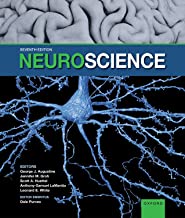Spring 2025 Class Schedule
For scheduled times of courses in other departments, go to CAESAR.
ATTENTION!
During preregistration enrollment in NEUROSCI 206-0 is limited to neuroscience majors only!
To declare a Neuroscience Major, please request an appointment through neuroscience@u.northwestern.edu. Please be sure to list your availability!
| Course | Title | Instructor | Lecture | Discussion |
|---|---|---|---|---|
| NEUROSCI 206-0-22 | Cellular and Molecular Neuroscience | Wang | MWF 1:00 pm - 1:50 pm | |
| NEUROSCI 303-0-20 | Molecular Mechanisms of Neuropsychopharmacology | Klein | TTH 11:00 am - 12:20 pm | |
| NEUROSCI 308-0-20 | Genetics of Human Behavior | Gallio | MW 11 am - 11:50 am | Th 5:00 pm - 6:50 pm |
| NEUROSCI 326-0-20 | Neurobiology of Learning and Memory | Yang | TTH 2:00 pm- 3:20 pm | |
| NEUROSCI 355-0-60 | Neurogenetics of Behavior Laboratory | Kilman | TF 3:00 pm - 5:30 pm | |
| NEUROSCI 390-0-28 | Brain function through the lens of computation | James Fitzgerald | MWF 10:00 am - 10:50 am | |
| NEUROSCI 399-0 | Independent Study | Kilman | As arranged |
What happens if a class fills up during preregistration?
Preregistration allows majors to add up to 2.34 units before anyone else may register for Neuroscience related courses - lists of classes allowing preregistration. Preregistration is the ideal time for students to enroll in Group A or Group B requirements at a time when courses are only available to Neuroscience Majors. If you were unable to register for 2.34 units because the class you wanted was filled, you will be able to place your name on the waitlist during regular registration do not contact the instructor for a permission number. Having your name on the waitlist does not guarantee you a spot in the class. It offers the opportunity to take the class if a registered student drops the class which you were interested in.
What happens if a class fills up during registration?
- Place your name on the waitlist.
- Wait to be contacted by the program assistant to see if you are able to register for the class.
- Once contacted, you must either remove your name and register for the class or remove your name from the waitlist.
Quick Course References:
 NEUROSCI 206-0-22 Systems and Behavioral Neuroscience
NEUROSCI 206-0-22 Systems and Behavioral Neuroscience
Taught by Dr. Wei Chun Wang on MWF 1:00 pm -1:50 pm. This course explores current understanding of the organization and function of neural systems (visual, auditory, motor, etc.) within the mammalian nervous system. Topics will include basic neuroanatomy, sensory processing, motor control, and higher cognitive functions including memory and language. Time will be devoted to presentation of essential knowledge from each area as well as to a discussion of key experiments that have contributed to our understanding. May not receive credit for both this course and the former NEUROSCI 306-0/BIOL_SCI 306-0.
This course is limited to Neuroscience Majors during preregistration but is open to all students meeting the prerequisites beginning February 27, 2025.
Prerequisite: NEUROSCI 202-0 or NEUROSCI 311-0 or BIOL_SCI 302-0.
Natural Sciences Distro Area
NEUROSCI 303-0-20 Molecular Mechanisms of Neuropsychopharmacology
Taught by Dr. William Klein on TTh 11:00 am - 12:50 pm. Neuropsychopharmacology treats brain disorders and interrogates states of consciousness by altering the activity of specific brain molecules. These molecules largely localize to synapses, remarkable structures where signaling gives rise to thought and behavior. This advanced seminar course focuses on molecular mechanisms and aberrations of synaptic signal transduction and drugs that target them. Introductory historical perspectives will be followed by consideration of contemporary issues. Class discussions focus on readings from the research literature. No book required. No final exam during finals week.
Prerequisite: NEUROSCI 202-0 or NEUROSCI 311-0 or BIOL_SCI 302-0.
 NEUROSCI 308-0-20 Genetics of Human Behavior
NEUROSCI 308-0-20 Genetics of Human Behavior
This course will be taught by Dr. Marco Gallio on Mondays and Wednesdays from 11:00 am until 11:50 am. There is a discussion session on Thursdays from 5:00 pm until 6:50 pm.
This course was formerly coded NEUROSCI 390-0-25 and CTECS will be available under that course code.
In this course we will delve into the genetic determinants of human behavior. We will discuss how "nature" (the genetic makeup) and "nurture" contribute to shape individual behavior and explore the implications of this interaction at the level of society, from philosophical and ethical aspects to medical and legal considerations.
We will often follow a historical perspective to understand how our thinking on this subject has changed with the advancement of scientific knowledge and with the evolution of what we think is acceptable in society. The class content will be strongly anchored in basic science: we will first learn concepts of both classical and
modern genetics and neurogenetics (with emphasis on human genetics). We will then talk about how genes can determine or influence behavior: we will discuss how genes build neural circuits and how brain circuits in turn produce behavior (often using animal models as examples). Starting from primary research and reviews,
students will be asked to discuss relevant topics in this area including the genetics of aggression, parental behavior, social behavior, predisposition to mental illness or disease etc. Assessment will be based on a combination of quizzes, in class presentations and a final essay based on original literature research. This is an upper-level course where you will utilize a lot of what you have learned in the past few years: molecular biology, intro neuroscience, anatomy, physiology... Please refer to Caesar for additional information.
This course is limited to Neuroscience Majors during preregistration but is open to all students meeting the prerequisites beginning February 27, 2025.
Prerequisites: NEUROSCI 202-0 and NEUROSCI 206-0.
NEUROSCI 308-0-20 and NEUROSCI 390-0-25 may be used as a Neuroscience Group B elective or may be used as an Allied Field in Biology. You may not get credit for both NEUROSCI 308-0-20 and NEUROSCI 390-0-25.
NEUROSCI 326-0-20 Neurobiology of Learning and Memory
NEUROSCI 326-0-20 will be taught by Dr. Yue Yang on Tuesdays and Thursdays, 2:00 pm - 3:20 pm.
How do animals learn? This course examines how brain cells and neural circuits process an animal's experience into lasting changes in behavior. Lectures will involve in depth discussion of original research findings, with a focus on the latest molecular, neural physiology, and behavioral studies.
A key goal of the course is for students to think about the design and interpretation of experiments from the primary literature, as well as to critically evaluate how these experiments address current questions in the field of learning and memory.
Prerequisites: NEUROSCI 202-0 and NEUROSCI 206-0; or NEUROSCI 311-0 and NEUROSCI 206-0; or BIOL_SCI 302-0.
This class is available to Neuroscience Majors or Biology Majors only.
Please refer to Caesar for additional information.
NEUROSCI 326-0-20 may be used as a Neuroscience Group B elective or may be used as an Allied Field in Biology.
NEUROSCI 355-0-60 Neurogenetics of Behavior Laboratory
This class will be taught by Dr. Valerie Kilman on Tuesdays and Fridays 3:00 pm - 5:30 pm although additional time is required to complete certain tasks. Please refer to Caesar for additional information.
Project-based laboratory investigating the genetic basis of behavior in a simple model system; molecular genetic techniques used in neurobiology.
Prerequisites: NEUROSCI 202-0 and NEUROSCI 206-0; or NEUROSCI 311-0 and NEUROSCI 206-0; BIOL_SCI 302-0.
This course is limited to Neuroscience Majors during preregistration but is open to all students meeting the prerequisites beginning February 27, 2025.
NEUROSCI 355-0-60 may be used as a Neuroscience Group B elective or may be used as an Allied Field in Biology. It also fulfills the laboratory requirement for the Neuroscience Major.
NEUROSCI 390-0-28 brain function through the lens of computation
This class will be taught by James Fitzgerald. Understanding brain function is a grand challenge for twenty-first century science that promises revolutionary applications to medicine and artificial intelligence. Mathematical modeling can contribute valuably to this understanding by allowing scientists to formalize experimental findings and reason beyond their intuition.This course will introduce students to the basic building blocks of neural computation, as well as illustrate how these building blocks combine to generate myriad brain functions. We will begin with an overview of several key principles related to neural network dynamics and neural coding. The bulk of the course will then develop these principles by illustrating how computational neuroscientists have used them to model specific sensory, motor, and cognitive functions of the brain. For instance, we’ll see how neural networks can represent the sensory world, generate movement, or store memories depending on the connections between neurons. We’ll also see how these connections can change to enable learning. Over the decades, computational neuroscience has enjoyed a rich dialogue with machine learning and data science, and lectures interspersed throughout the course will explain the practical importance of computational neuroscience approaches for the modern world.
Computational neuroscience is highly interdisciplinary, and the course is open to students with a wide variety of backgrounds, including those majoring in Neuroscience, Data Science, Physics, Applied Mathematics, and Engineering. Problem sets will use Matlab, and some familiarity with coding is recommended. We recommend that Neuroscience majors complete the core NEUROSCI 202-0 and NEUROSCI 206-0 courses first.
Prerequisites: MATH 220-2 or higher
NEUROSCI 390-0-28 may be used as a Neuroscience Group B elective or may be used as an Allied Field in Biology or Computation and Modeling Systems.
NEUROSCI 399-0-60 INDEPENDENT STUDY
Student must be Neuroscience major. Research must be related to Neuroscience. The first week of class students will be required to upload to CANVAS:
- A 1-page research plan, methods, and timeline - this is written in collaboration with your proposed research mentor,
- A typical weekly schedule committing a minimum of 10 hours per week,
- An email from the proposed faculty mentor accepting you in the lab.
